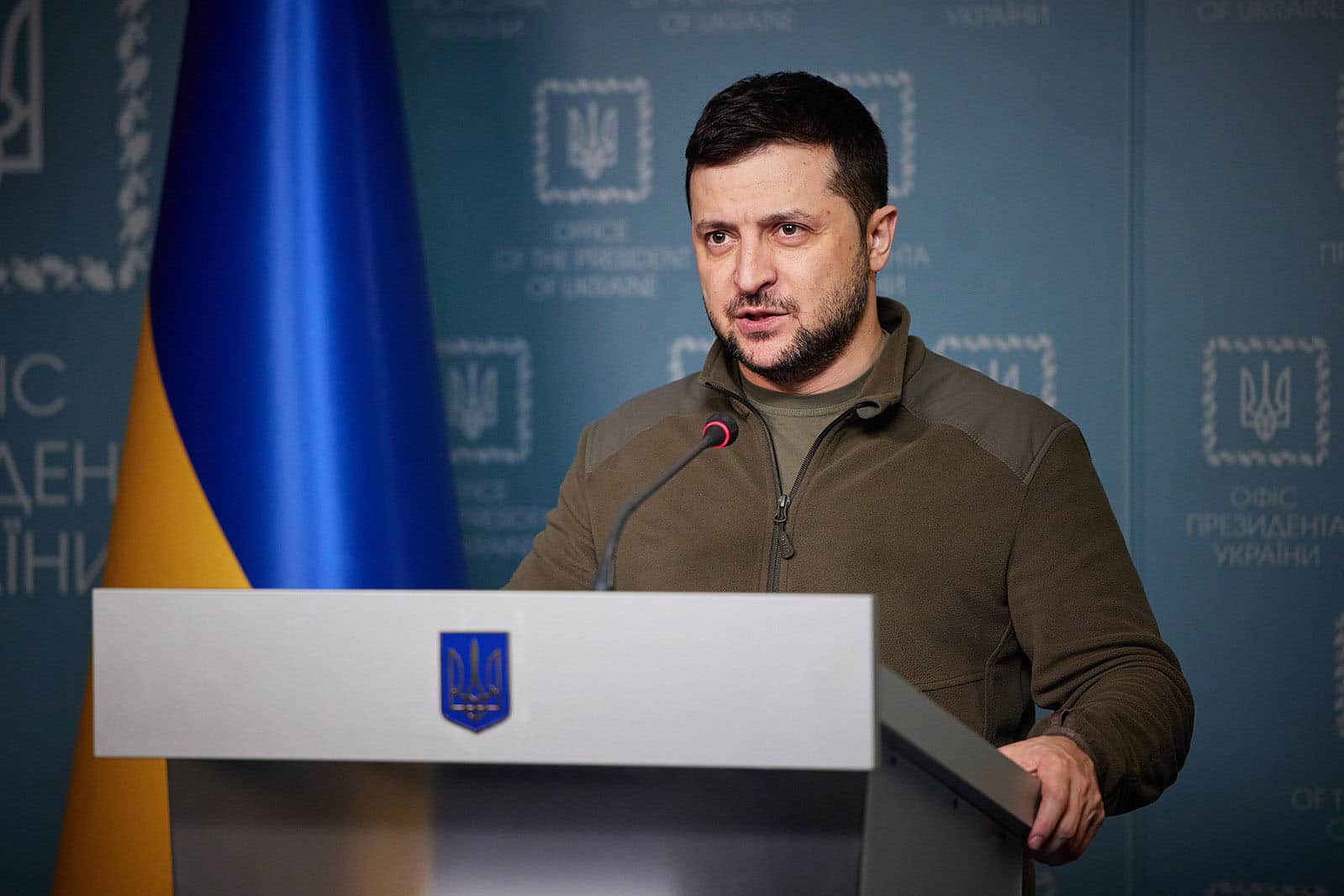Gaza has been under siege for around a month and a half. But in reality, it has been occupied for well over 50 years.
So, when Ukraine’s President Volodymyr Zelenskyy claims that “the war in Israel and Gaza is taking away the focus” from Russia’s onslaught on Ukraine, some questions come to mind.
Firstly, I wonder why he does not condemn Israel’s occupation of Palestine in a similar vein to the Russian invasion. My fellow writers have written quite sensitively and courageously about this very cowardice coming from other powers and institutions.
Secondly, I wonder why the world is only able to focus on one singular issue at a time. To address this, it is important to first acknowledge that Zelenskyy’s fears are legitimate. The situation in Ukraine hasn’t changed significantly since Russia’s invasion began in 2022. Ukrainians continue to suffer, perpetually trapped in an active state of war, yet attention to their situation has diminished.
Reactionary aid to crises
Zelenskyy’s statement also indicates the world’s skewed perception toward humanitarian aid. We exist in a reactionary world that offers help to the most recent crises. With an increase in attention toward a specific issue, the onus on world leaders to address these issues grows as well — which shows why help to the Middle East has increased and to Ukraine has waned.
Furthermore, I believe state governments find it easier to divert their resources to more ‘urgent’ conflicts as it helps them fulfill their commitment to the international order while relieving them of the onus to respond adequately to every single crisis. Therefore, as popular support for the Ukrainian war wanes in countries like the US, those countries’ administrations begin to redistribute their resources towards more ‘pressing’ conflicts like that in the Middle East.
In a reactionary world, we also offer aid to those with internationally recognized legitimacy and power. In the Middle East, there is a discrepancy in support toward Israel and toward Palestine.
I see multiple reasons for this difference in treatment. The first one is that the legitimacy Israel holds as a recognized sovereign country makes it easier for countries to support it without upsetting the current international order. To stand with Israel is to stand with democracy, or so the dominant narrative goes.
The internalized Islamophobia within the domestic discourse of several countries further aggravates the situation. An example is the support for Israel from some Indian users on X with little to no knowledge of the situation in Palestine — their antagonization of Palestine seems to merely stem from them equating Palestinians to Muslims.
News fatigue and news cycles
The diminishing public interest is also due to what researchers call “news fatigue.” The sheer abundance of news that we have access to leads us to consume more than we can handle and the more news that we consume, the less we want to see moving forward. Essentially, we tire out.
This oversaturation of news stories and our exposure to them then leads to desensitization. News items that have existed for longer periods of time become the ‘normal’ while fresh items in the news cycle take up more of our attention as ‘pressing news stories.’ This cycle forms the basis of why news items have to compete for our attention.
I consider this to be a vicious and largely reinforcing cycle which breeds callousness instead of urgency. The cycle creates a grim situation which I see in Zelenskyy’s statement: a country’s leader, whose people are under attack from a ruthless autocracy, seems to be worried that a conflict elsewhere will negatively affect the security of his people.
However, I believe it is wrong to ask why our attention is perpetually focused on the most recent issue. I would go a step further and ask how we can be attentive, without necessarily taking away our attention from somewhere else, and I believe that we can do that by making a conscious effort to understand the issue at hand. If illegal occupation is what we are against, then Palestine and Ukraine are both battling the same enemy.
In my view, Zelenskyy’s concerns would disappear in a world where the focus was on understanding why occupying someone else’s land was wrong. In that world, Ukraine and Palestine would find allies in a unified bloc of countries that are all committed to the fight against oppressive regimes.
Unfortunately, the reality is different. Allyship in this world is based on diplomatic relationships, religious affinity, and opportunities for economic development.
To change that is to change the international order. To change the international order is to systematically and aggressively gnaw at the bulky rope that binds it together. And we must continue to gnaw at it, until it gives way to a world where our aid isn’t the result of a contest of attention.
Nidhil Vohra is a fourth-year student at St. Michael’s College studying peace, conflict and justice and political science. He is an International Affairs columnist for The Varsity’s Comment section.



No comments to display.